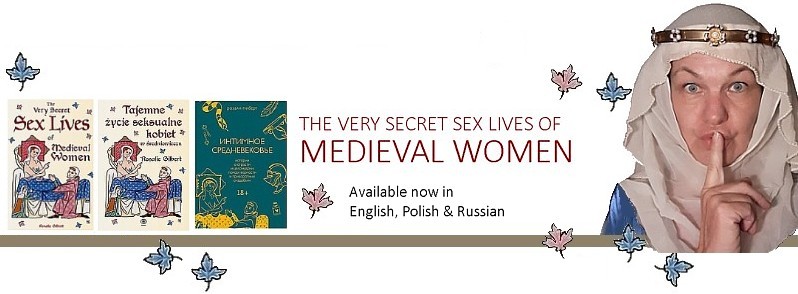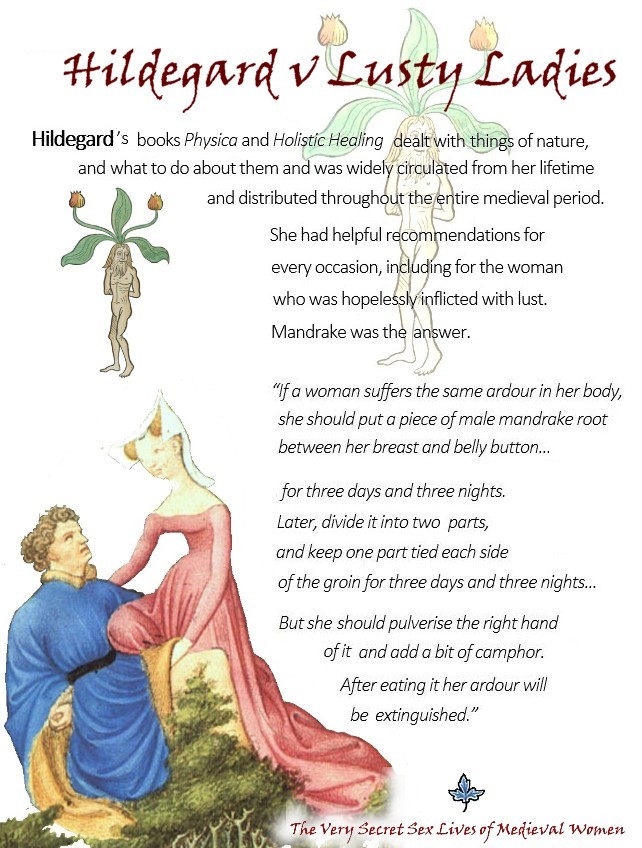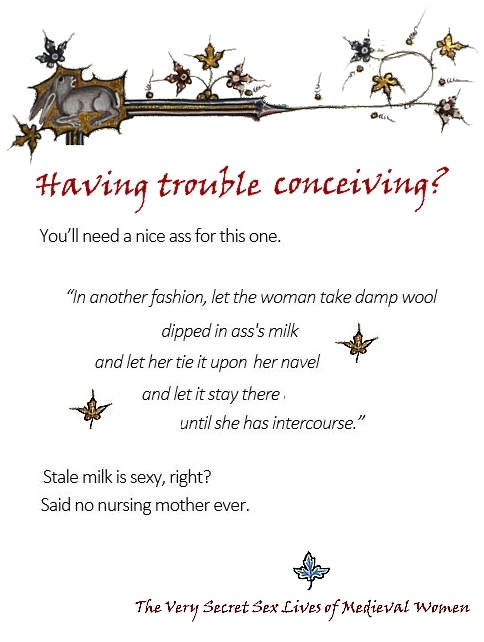Medieval Fertility Test
23 March 2023 08:00 pm[Unknown site tag]
In news which will shock absolutely no one at all, fertility tests have come down throughout the centuries to today, and almost everyone has their own special way of telling if a woman is pregnant or whether the expectant mother is carrying a male or female child.
One of the most fabulous ones, in my opinion, involves pots of bran and plenty of urine, which just sounds delightful, doesn't it? Never mind that diet has a great influence on the smell of urine and having the pots hanging around the house while the pots brew is possibly a stinky affair... but, honestly! Who in their right mind wishes to waste two perfectly good pots of bran which are rendered inedible by both humans and livestock alike.
I'm giving this one a hard pass, thank you.


In news which will shock absolutely no one at all, fertility tests have come down throughout the centuries to today, and almost everyone has their own special way of telling if a woman is pregnant or whether the expectant mother is carrying a male or female child.
One of the most fabulous ones, in my opinion, involves pots of bran and plenty of urine, which just sounds delightful, doesn't it? Never mind that diet has a great influence on the smell of urine and having the pots hanging around the house while the pots brew is possibly a stinky affair... but, honestly! Who in their right mind wishes to waste two perfectly good pots of bran which are rendered inedible by both humans and livestock alike.
I'm giving this one a hard pass, thank you.



